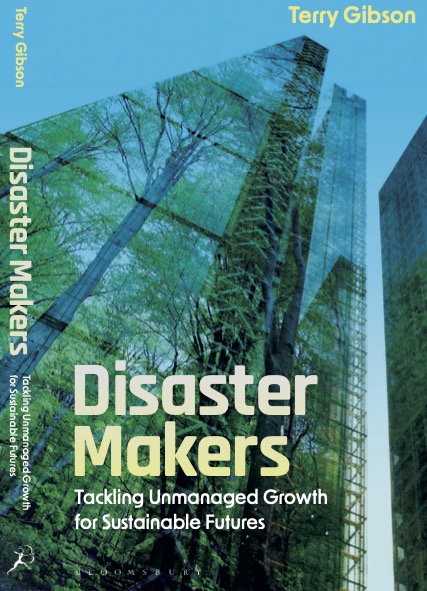Drawing on decades of on-the-ground experience, underpinned by the insights of disaster studies, Terry Gibson argues that major disasters such as the Covid-19 pandemic and the climate emergency, as well as many smaller disasters undermining peoples’ lives, are not inevitable but often avoidable. Those who create risk through unmanaged economic growth demanding ever-increasing manufacture, consumption and energy use are the disaster makers.
Gibson provides a thorough, sophisticated, yet accessible account highlighting who the disaster makers are and what they do. He demonstrates the urgency of taking control of our use of the planet’s resources to secure safe and prosperous futures for us all.
Terry Gibson is a researcher and practitioner in the disasters, development, and corporate responsibility industries. He has published a wide range of papers and chapters, as well as the book Making Aid Agencies Work (2019)
Available from Bloomsbury‘ and from all major booksellers (Publication date 20th February 2025)
A fascinating read… combines theory and empirical insights to convey a powerful argument in a very clear and accessible prose.’
Prof. J.C.Gaillard., The University of Auckland, New Zealand
‘This book challenges us to re-evaluate our responsibility for natural disasters. Essential reading for anyone concerned about our future and how we manage it.’
Richard Sambrook, Cardiff University, UK. Former Director BBC Global News
‘Gibson brings common sense and a strong moral sensibility to the naming and shaming of situations and systems that create risk.’
Ben Wisner, co-author of At Risk (2004)
‘Goes beyond confined, sectoral viewpoints to explain not only who makes disasters and how, but also why.’
Ilan Kelman, University College London, UK, and author of Disaster by Choice (2022)
‘Lays bare the mechanics of why and how we keep creating disaster risk – and what must happen for this to change. Recommended reading for anyone interested in risk management.’
Bina Desai, former coordinating lead author of the UN Global Assessment Report on Disaster Risk Reduction
